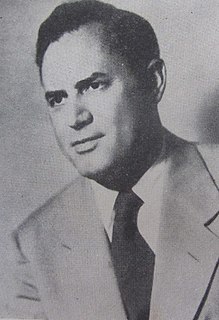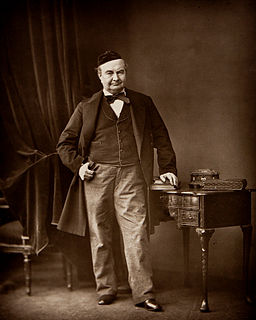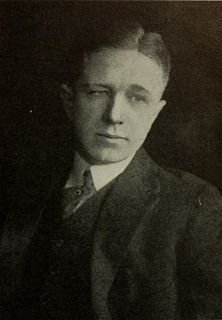A Quote by Bergen Evans
It (the dash ) is a comfortable punctuation mark since even the most rigorous critic can seldom claim that any particular example of it is a misuse. Its overuse is its greatest danger, and the writer who can't resist dashes may be suspected of uncoordinated thinking.
Related Quotes
Excessive partiality for one foreign nation and excessive dislike of another cause those whom they actuate to see danger only on one side, and serve to veil and even second the arts of influence on the other. Real patriots who may resist the intrigues of the favorite are liable to become suspected and odious, while its tools and dupes usurp the applause and confidence of the people, to surrender their interests.
If I ask you who is the most famous scientist who ever lived, or the greatest scientist who ever lived you'll say either Einstein or Newton or something like that because their claims were supposed to apply universally. But the claim of somebody who is studying a particular feature of the evolutionary process like whether it's very fast or very slow, or occurs in steps and so on, that's not a universal claim, that's a rather specialised claim and so you can't claim to great fame and great success.
Edmund Wilson was our greatest American literary critic because he was more than a literary critic: He was a fearless, even radical judge of the society he lived in. (See, for example, _A Piece of My Mind_; _The Cold War and the Income Tax_; the introduction to _Patriotic Gore_.) Our conventional critics cannot forgive him for those scandalous lapses in good taste.
The danger is that we may fail to perceive life's greatest meaning, fall short of its highest good, miss its deepest and most abiding happiness, be unable to render the most needed service, be unconscious of life ablaze with the light of the Presence of God - and be content to have it so - that is the danger. That some day we may wake up and find that always we have been busy with the husks and trappings of life - and have really missed life itself.
In most cases a favorite writer is more with us in his book than he ever could have been in the flesh; since, being a writer, he is one who has studied and perfected this particular mode of personal incarnation, very likely to the detriment of any other. I should like as a matter of curiosity to see and hear for a moment the men whose works I admire; but I should hardly expect to find further intercourse particularly profitable.
The point of mathematics is that in it we have always got rid of the particular instance, and even of any particular sorts of entities. So that for example, no mathematical truths apply merely to fish, or merely to stones, or merely to colours. So long as you are dealing with pure mathematics, you are in the realm of complete and absolute abstraction. . . . Mathematics is thought moving in the sphere of complete abstraction from any particular instance of what it is talking about.

































